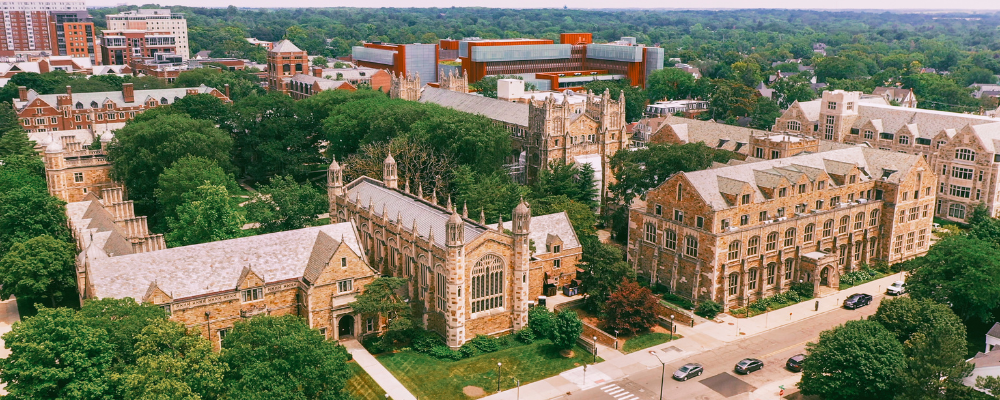In 2023, the IRS Chief Counsel released Memorandum AM 2023-004, which addressed whether Name, Image, and Likeness (NIL) collectives, formed to support college athletes, qualify for tax-exempt status under Section 501(c)(3). The memorandum concluded that many of these collectives fail to meet the criteria for tax exemption because they primarily serve private interests, specifically benefiting the student-athletes themselves.
This issue has gained importance since the NCAA introduced its 2021 Interim Policy, allowing college athletes to profit from their NIL. The policy shift, prompted by the Supreme Court’s decision in NCAA v. Alston, opened the door for athletes to earn money from endorsements, sponsorships, and other NIL activities. As a result, NIL collectives — often formed by boosters, alumni, or fans — emerged to facilitate these deals. However, roughly one-third of the 250-plus NIL collectives that initially received tax-exempt status under Section 501(c)(3) are now facing questions about their compliance following the IRS memo.
What Are NIL Collectives?
NIL collectives are groups, often formed by supporters of university athletics, that pool resources to provide financial opportunities for student-athletes. These collectives facilitate NIL deals such as endorsements and appearances. Collectives can be for-profit, operating like businesses, or nonprofit, claiming charitable purposes. However, nonprofit collectives face increased scrutiny from the IRS due to concerns that they primarily benefit athletes, which conflicts with the requirements for tax-exempt status.
IRS Findings on NIL Collectives and Tax Exemption
The IRS Chief Counsel Memorandum AM 2023-004 lays out a detailed analysis of NIL collectives and their compliance with Section 501(c)(3). According to the IRS, organizations seeking tax-exempt status must pass the operational test, which assesses whether an organization primarily serves public, not private, interests.
The memo stated that most NIL collectives fail this test because their core activity involves paying student-athletes for their NIL rights. The IRS determined that these financial benefits overshadow any broader public good that might result from the collective’s activities. Although some NIL collectives claim to support community service or charitable causes, the IRS found these efforts insufficient to outweigh the private benefits provided to athletes.
In addition to the operational test, the IRS applies the private benefit doctrine, which requires organizations seeking tax-exempt status to serve the public interest. NIL collectives, by directly benefiting athletes, fail this requirement. The IRS memorandum emphasizes that even if a collective engages in some charitable activities, the significant private benefits to athletes prevent it from meeting the criteria for 501(c)(3) status.
Potential Risks for Universities and NIL Collectives
Colleges and universities affiliated with or benefiting from NIL collectives must be aware of several risks. Even though NIL collectives are often independent from the universities themselves, any misuse of tax-exempt status by these collectives could lead to serious consequences for both the collective and the institution.
- IRS Audits and Penalties: NIL collectives that improperly claim tax-exempt status are at risk of IRS audits. These audits could lead to financial penalties or, in some cases, the revocation of tax-exempt status. Collectives found to be primarily benefiting student-athletes would be in violation of 501(c)(3) requirements.
- Ethical and Reputational Risks for Universities: Universities working closely with or indirectly benefiting from these collectives may face ethical questions or reputational damage if their athletes are found to be profiting from activities that violate IRS or NCAA regulations. The public perception of universities prioritizing athlete compensation over their educational mission could harm a school’s standing.
Navigating Uncertainty
To comply with both IRS and NCAA regulations, universities must maintain a clear separation from NIL collectives. The NCAA prohibits schools from directly compensating athletes for their athletic performance, so universities must avoid any involvement in structuring NIL deals. Although NIL collectives are independent entities, even the appearance of university involvement could lead to NCAA sanctions, particularly if compensation is tied to athletic participation or performance.
At the same time, boosters and alumni are the primary financial supporters of these collectives. While universities may benefit indirectly by attracting top athletes, they need to carefully manage these relationships to avoid crossing compliance boundaries. Ensuring that NIL agreements align with NCAA and IRS regulations is critical to avoiding penalties and protecting their tax-exempt status.
Further complicating matters, recent legal developments have raised broader questions about NIL compensation. For instance, a federal lawsuit led by the attorneys general of Tennessee and Virginia challenged the NCAA’s NIL rules. A judge granted a preliminary injunction, suggesting these rules likely violate antitrust law. While this ruling primarily impacts NCAA regulations rather than IRS tax-exempt guidelines, it underscores the legal uncertainty surrounding NIL rules and the need for universities to stay vigilant.
Looking Ahead
The IRS Chief Counsel memorandum on NIL collectives has made it clear that most of these organizations do not meet the criteria for tax-exempt status. For NIL collectives, the primary challenge lies in their focus on compensating student-athletes, which runs counter to the public interest focus required by Section 501(c)(3).
Colleges and universities will want to be aware of NIL-related activities, ensuring that their athletes comply with NCAA rules and that any association with NIL collectives does not jeopardize the school’s reputation or compliance with tax regulations.
As NIL opportunities expand, universities may also need to explore alternative structures, such as for-profit entities, to handle NIL payments without risking their compliance with IRS and NCAA guidelines. By taking a proactive approach and staying informed, universities can protect both their athletes and their programs while maintaining compliance. For tailored guidance on compliance requirements, contact Ed Yoder, CPA and Partner with PBMares’ Not-for-Profit practice.





